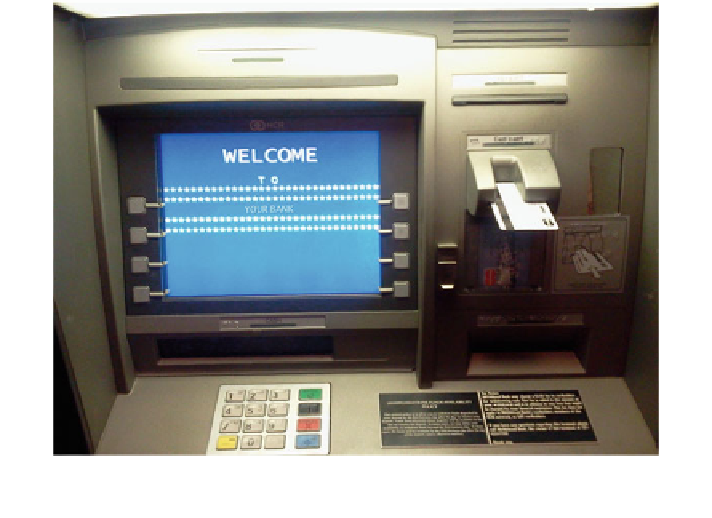Information Technology Reference
In-Depth Information
Fig. 6.10 An ATM machine that helps avoid the post-completion error because it does not retain
the card. Another way is to return the card before giving money
unless you have an unusual set of users, they will not enjoy solving insight
problems (although see the breakout box on ''Need for cognition'').
6.3.3.4 Post-completion Errors
The post-completion error (Byrne and Bovair
1997
) is an interesting and important
effect between memory and problem solving. This error arises when the goal for
the task has been completed but the goals for the subtasks have not. For example,
when you go to an old fashioned ATM machine, you will get your money before
you get your card when making a withdrawal. You are there to get the money, not
to get your card back. Once you have your money, you may walk away, leaving
your card behind. Newer machines return your card before dispensing your money.
Figure
6.10
shows another answer, a machine that does not retain the card.
Other examples of post-completion errors are available from email: when you
write the email but do not send it, or when you mention an attachment but do not
attach it. This error can also be seen in programming, where you allocate the
memory for an array but do not release it when you have finished using it.
Post-completion errors provide a few suggestions for design. They suggest that
the system should discourage the user from believing that they have completed the
task until all the important subparts are done, and to put the most important goal
last where technology and the situation permit.

Search WWH ::

Custom Search